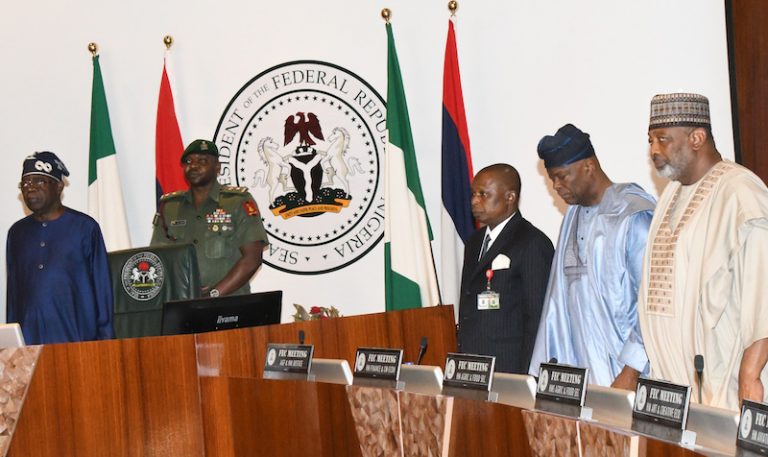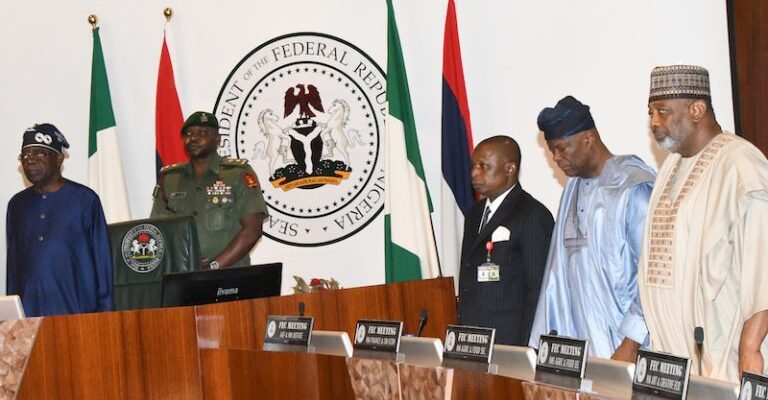
In a marathon session presided over by President Bola Tinubu, the Federal Executive Council (FEC) has rolled out 21 significant policy initiatives aimed at boosting the economy, enhancing investment opportunities, and promoting the ease of doing business in Nigeria. The meeting, which began on Monday and concluded on Tuesday, marked an unprecedented deliberation in the council’s history.
Among the key initiatives announced is a new 48-hour visa policy designed to streamline the process for investors and tourists. This policy is expected to make Nigeria a more attractive destination for foreign investments. President Tinubu’s Adviser on Media and Publicity, Bayo Onanuga, highlighted this and other policies in a post on his X handle, formerly known as Twitter.
Other notable policies include the cancellation of airport toll payment exemptions for very important persons (VIPs) and a ban on sand dredging within 10 kilometers of all federal bridges across the country.
Minister of Information and National Orientation, Mohammed Idris, briefed State House correspondents on the outcomes of the FEC meeting, emphasizing the government’s commitment to reviewing its visa regime to facilitate quicker and more efficient entry for investors.
“The visa policy review is necessary to foster ease of doing business on Nigerian soil,” Idris stated, noting that a tripartite committee has been established to streamline the visa issuance process. This includes enhancing the existing e-visa platform to ensure visa applications are processed within 48 hours.
In a significant move, the FEC approved a memorandum from the Ministry of Aviation and Aerospace Development, which mandates the collection of airport access tolls from all individuals, including VIPs and government officials. This initiative is projected to generate at least N10 billion annually, addressing revenue losses and improving airport infrastructure.
The FEC also greenlit several other substantial projects and policies, including a N2 trillion mortgage initiative, a N51 billion transport terminal hub in Abuja, and a $7 million investment in transforming a U.S. property into a Nigerian tech hub. Additionally, the council approved a new revenue platform for gaming and lottery businesses and allocated N546 billion for road projects across various states.
In the energy sector, the FEC sanctioned a N72 billion project to enhance the country’s power infrastructure, including the construction of a new transmission line and the procurement of emergency restoration systems for quick repair of vandalized assets.
The government also defended the Lagos-Ibadan Coastal Highway project, affirming that it adhered to due process and would significantly contribute to the nation’s development.
Finance Minister Wale Edun announced plans to tap into local funds, such as pension and life insurance, to finance infrastructure projects, highlighting over N20 trillion available in long-term funds.
Furthermore, the FEC approved nearly N100 billion for various development projects in the Federal Capital Territory, including the construction of bus terminals, the Court of Appeal Abuja division, and security operations for critical infrastructure.
President Tinubu’s administration continues to emphasize a strategic approach to economic reforms, aiming to enhance Nigeria’s global competitiveness and ensure sustainable development.

Comments